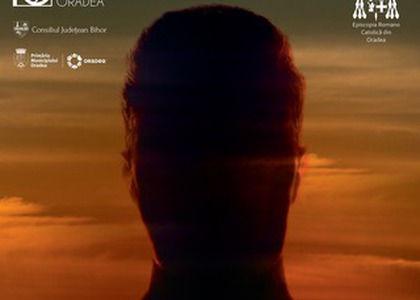> [Archived] Events

Music of the Shadows - vocal-symphonic concert at the State Philharmonic of Oradea
The public of Oradea is invited on Thursday, November 11th, at 19.00 at the Roman-Catholic Cathedral in Oradea to hear the concert Music of the Shadows, a musical incursion full of emotion and symbolism. The programme of this event revolves around death, offering listeners comfort and hope. The evening opens with Edward Elgar's Sospiri, Op. 70, composed shortly before the outbreak of the First World War and written for string orchestra, harp and organ. The piece was originally intended to be called Soupir d'Amour (Sigh of Love), but the intensity of feeling created by Elgar's music led the composer to change its name to the Italian Sospiri (Sighs). It was premiered on the 15th of August 1914 in Queen's Hall, London, and was dedicated to the violinist Billy Reed, an old friend of the composer. The evening concludes with Kindertodtenlieder, a work that was in its original form a collection of 428 poems by Friedrich Rückert, written between 1833 and 1834, capturing the author's emotion and grief at the loss of two of his children. These poems were given musical form in 1904, when Gustav Mahler dressed them up in a musical cycle for voice and orchestra.
Samuel Barber's Adagio for Strings, Op.11 continues this musical journey, the composition being built largely on a repetitive three-note motif. The melody of the whole work is characterised by a deep melancholy, and as the aural discourse develops, the phrases become more and more ample, the accumulated tension flooding the whole musical discourse. Melancholy also carries us through Songs and Dances of Death, a collection dedicated to the voice and piano that was born to the music of Russian composer Modest Mussorgsky and the lyrics of poet Arseny Golenishchev-Kutuzov. The series comprises four pieces that reflect death in the 19th century Russian realist form through the themes they deal with. The first lied, Lullaby, illustrates the death of a baby, the second, Serenade, expresses the death of a young woman. Trepak is the work that depicts a drunken peasant who loses his life in the snowy blizzard, and the last lied, Marshal, expresses the death of a marshal on the battlefield. The evening's finale will fill the sacred space of the Roman Catholic Cathedral with the tragic end of the love story between the central characters in The Death of Melisande, the last part of the Pelléas et Mélisande suite. The suite served as incidental music for Maurice Maeterlinck's play of the same name. Jean Sibelius originally composed 10 parts, reducing it to 9, and it was premiered at the Swedish Theatre in Helsinki on the 17th of March 1905, conducted by the composer himself.
These highly charged pieces will be performed by the baritone Florin Estefan from Oradea. He began studying vocal singing at the Faculty of Music in Oradea, then perfected his skills in Cardiff and Florence, working with such great names in the performing arts such as Dennis O'Neill, Mariana Nicolesco, Ileana Cotrubaș and Viorica Cortez. Since his student days, Florin Estefan has participated in numerous competitions, where he has been awarded various prizes, including: first prize at the National Competition "Sabin Drăgoi" Timisoara, first prize in 2003 at the International Competition "Hariclea Darclee" Braila and second prize at the International Singing Competition "Arta Florescu" Bucharest. In 2005, the baritone participated in the world premiere of the Complete Lieder by George Enescu in Japan. The baritone's repertoire includes both scenic creations and vocal-symphonic works, among his roles are Enrico from "Lucia di Lammermoor" by G. Donizetti, Marcello in Puccini's "Boema" and Sharpless in "Madama Butterfly", Germont in G. Verdi's "Traviata" and others. Florin Estefan is currently a soloist and general manager of the Romanian National Opera in Cluj-Napoca and a teacher at the "Gheorghe Dima" Music Academy.
Conductor Vladimir Lungu, born in the Republic of Moldova, graduated from the "Gheorghe Dima" Music Academy in Cluj-Napoca, studying with renowned conductors such as Petru Sbârcea and Gheorghe Victor Dumănescu. He began his conducting career at the Romanian National Opera in Cluj-Napoca in 2002, where he worked for 5 years. Vladimir Lungu then became the conductor of the State Opera of Mersin, Turkey, taking over the position of artistic director in 2009. He has conducted orchestras in Romania, Turkey, Moldova and the Czech Republic and in 2013 Vladimir Lungu received the "Conductor of the Year" award from the Turkey Lions Club. Since 2015, he has started his teaching career at the Izmir State Conservatory, also continuing his collaboration with the Izmir State Opera.
Please note: The performance contains images and texts that are not recommended for people under 16!
Tickets for the concert are on sale on the bilete.ro platform (https://www.bilete.ro/muzica-umberlor/),on the website and at the ticket office of the Oradea State Philharmonic.
Follow us on:
www.facebook.com/filarmonicaoradea
https://www.instagram.com/filarmonicaoradea
Translated by Andreea Grințescu,
University of Bucharest, Faculty of Foreign Languages and Literatures, MTTLC, year I
Corrected by Silvia Petrescu














